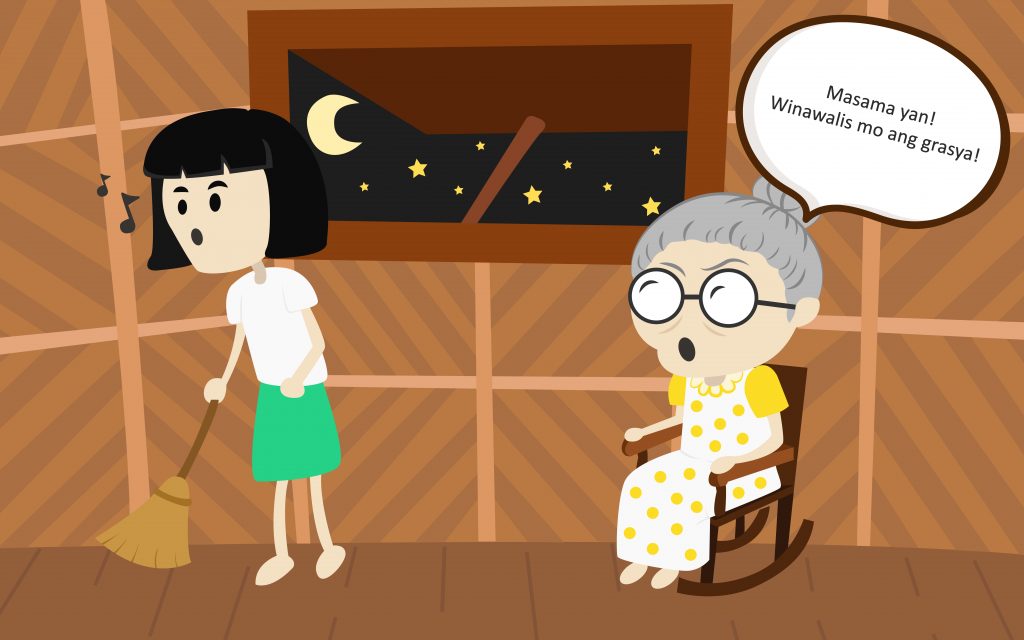Filipino superstitions are deeply rooted in the culture and include beliefs like sweeping at night driving away blessings, and singing while cooking leading to a lifetime of singlehood. These superstitions often revolve around luck and everyday activities, influencing behaviors and decisions.
Superstitions vary across different regions and communities in the Philippines, with some common beliefs involving avoiding certain actions or behaviors to prevent bad luck or attract good fortune. Understanding these superstitions provides insight into the cultural fabric of Filipino society and the significance of traditional beliefs in everyday life.
Superstitions continue to play a significant role in Filipino culture, shaping customs and practices in various aspects of life.
The Essence Of Filipino Superstitions
Filipino superstitions hold a significant place in the rich cultural tapestry of the Philippines. These beliefs, deeply rooted in tradition and folklore, have been passed down through generations and continue to influence the daily lives of Filipinos. From the moment they wake up to the time they go to bed, superstitions shape their actions, decisions, and even their outlook on life. Let’s explore the essence of Filipino superstitions and understand how they are intertwined with the Filipino culture and impact daily life.
Roots In Filipino Culture
The roots of Filipino superstitions can be traced back to a blend of indigenous beliefs, Spanish influence from the colonial era, and the fusion of various cultural practices over time. Filipino folklore and mythology play a significant role in shaping these superstitions, as they reflect the beliefs and values of the Filipino people.
Superstitions in the Philippines often revolve around concepts such as luck, spirits, and omens. For instance, the practice of “pagpag,” which involves visiting a place after attending a wake, is believed to ward off bad luck and prevent spirits from following a person home. The phrase “tabi-tabi po” is uttered when passing through areas believed to be inhabited by spirits, such as cemeteries, as a sign of respect and to avoid any potential harm.
Influence On Daily Life
Filipino superstitions have a profound influence on the daily lives of individuals, permeating various aspects such as relationships, health, and even success. These beliefs are so deeply ingrained that they often shape decision-making and behavior.
One example is the belief in “pancit,” a type of noodle dish. Serving pancit at celebrations, especially birthdays, is believed to bring about long life and good luck. Another superstition is the practice of knocking on wood to counter a negative remark or prevent bad luck. Filipinos also avoid sweeping the floor at night, as it is believed to drive away blessings.
These superstitions are not merely empty rituals but hold deep meaning and significance in the lives of Filipinos. They provide a sense of comfort, a connection to their cultural heritage, and a way to navigate the uncertainties of life.
In conclusion, Filipino superstitions are an integral part of the Filipino culture, reflecting the beliefs, values, and traditions of the people. They play a crucial role in shaping daily life and decision-making. Whether it’s avoiding certain actions or performing specific rituals, these superstitions provide a sense of connection, meaning, and guidance in the lives of Filipinos.

Credit: www.lumina.com.ph
Superstitions And Home Life
Superstitions play a significant role in the daily lives of Filipinos, especially when it comes to their home life. From evening rituals to cooking lore and even hair combing, these superstitions are deeply ingrained in Filipino culture. Let’s explore some intriguing beliefs that shape the way Filipinos navigate their homes.
Evening Rituals And The Night
In Filipino culture, evening rituals hold a special place. Many believe that sweeping the floor at night will drive away incoming blessings. This superstition stems from the notion that sweeping at night disturbs the spirits that bring prosperity. Additionally, some Filipinos avoid cutting their nails at night as it is believed to bring bad luck and even attract evil spirits.
When it comes to the night, Filipinos have a unique belief regarding dreams. They believe that if you dream about a tooth falling out, it signifies the death of a loved one. Conversely, dreaming about money or coins symbolizes an upcoming windfall.
Cooking Lore And Love Life
Filipinos have a superstition that singing while cooking will make you single for the rest of your life. This belief stems from the notion that the spirits will hear your joyful singing and become jealous, hindering your chances of finding love. It’s a fascinating belief that showcases how superstitions intertwine with everyday activities.
Another intriguing superstition is related to the cooking of noodles. Filipinos believe that serving pancit (noodles) at celebrations, especially birthdays, represents long life. It is believed that the length of the noodles symbolizes the longevity of the person’s life.
Hair Combing And Nighttime Curses
Combing your hair at night is considered unlucky in Filipino superstitions. It is believed that combing your hair after sunset attracts bad luck and even curses. This belief is rooted in the idea that combing your hair at night invites negative energy and disrupts the peaceful spirits that reside in the darkness.
Moreover, Filipinos have a superstition that when you hear dogs howling at night, it signifies the presence of aswang, a mythical creature known for its shape-shifting abilities. This belief instills fear and caution among Filipinos, who take extra measures to protect themselves from potential harm.
Superstitions are deeply embedded in Filipino culture and significantly influence the way Filipinos navigate their home life. From evening rituals to cooking lore and even hair combing, these beliefs provide a unique insight into the Filipino mindset. Whether one chooses to believe in them or not, these superstitions continue to shape and enrich the cultural fabric of the Philippines.
Financial Fortunes And Practices
Filipino culture is rich in superstitions and beliefs, especially when it comes to financial fortunes and practices. These beliefs often influence everyday decisions and habits, shaping the way individuals approach wealth and prosperity.
Start of Subsection
The Itchy Palm Phenomenon
According to Filipino superstitions, having an itchy right palm signifies that you will receive money, while an itchy left palm suggests that you will lose money. This belief often influences individuals to pay attention to their palm sensations, attributing it to potential financial gain or loss.
End of Subsection
Start of Subsection
Chipped Plates And Financial Luck
In Filipino culture, chipped or cracked plates are believed to bring financial luck. It is a common belief that keeping chipped plates in the kitchen can attract money and prevent financial hardships. Many households preserve chipped plates rather than discarding them, as they are considered to bring good fortune.
End of Subsection

Credit: www.filwebasia.com
Superstitions In The Public Domain
Filipino culture is steeped in superstitions, many of which are passed down from generation to generation and considered part of the public domain. These superstitions are deeply ingrained in the Filipino psyche and are practiced by people from all walks of life, regardless of social or economic status. In this article, we will explore some of the most common superstitions in the public domain and their significance in Filipino culture.
Respect For The Spiritual Realm
Filipinos have a deep respect for the spiritual realm, and many of the superstitions in the public domain are rooted in this belief. For example, the phrase “tabi-tabi po” is often used when passing by places that are believed to be inhabited by spirits, such as cemeteries or haunted areas. This is a way of showing respect and asking permission to pass through without disturbing the spirits.
Pagpag: Shaking Off Bad Spirits
Pagpag is another common superstition in the public domain. It is the act of shaking off bad spirits after visiting a wake or funeral. It is believed that bad spirits can attach themselves to mourners, and by shaking off the spirits, one can prevent them from following them home.
Other superstitions in the public domain include avoiding sweeping the floor at night, as it is believed to sweep away good luck and blessings. Singing while cooking is also discouraged, as it is thought to bring bad luck and result in a lifetime of being single. Combing your hair at night is also considered taboo, as it is believed to bring bad luck.
In conclusion, superstitions are deeply ingrained in Filipino culture and are considered part of the public domain. Respect for the spiritual realm and the belief in the power of superstitions are deeply rooted in the Filipino psyche. While some of these beliefs may seem silly or irrational to outsiders, they hold great significance to Filipinos and are an important part of their cultural heritage.
Superstitions That Influence Behavior
Filipino superstitions have a strong influence on behavior. Sweeping the floor at night is believed to drive away blessings, while singing while cooking is said to bring a lifetime of being single. Combing your hair at night is considered bad luck, and there are many more beliefs that shape the actions of Filipinos.
Filipino superstitions are deeply ingrained in their culture, and they often influence behavior. Some common superstitions that Filipinos follow include knocking on wood and proper handling of spilled salt.
Knocking On Wood
Knocking on wood is a common superstition among Filipinos. It is done to counter a negative remark or to prevent bad luck from happening. When someone says something negative, the person who hears it usually knocks on wood three times to ward off bad luck. This superstition is believed to have originated from the belief that spirits reside in trees, and knocking on wood is a way of seeking their protection.
The Proper Handling Of Spilled Salt
Spilled salt is believed to bring bad luck in Filipino culture. To prevent this, Filipinos have a specific way of handling spilled salt. They believe that throwing salt over the left shoulder will prevent bad luck from happening. This superstition is believed to have originated from the belief that the devil is always lurking behind the left shoulder, and throwing salt over it will blind the devil and prevent him from causing harm.
In conclusion, superstitions play a significant role in Filipino culture and influence behavior. Knocking on wood and proper handling of spilled salt are just two examples of how Filipinos follow these beliefs. While some may dismiss these superstitions as mere folklore, they continue to be a part of Filipino culture and traditions.

Credit: theculturetrip.com
Objects Of Superstition
Filipino superstitions are deeply rooted in everyday life, with various objects associated with good or bad luck. For example, sweeping at night is believed to drive away blessings, while combing hair after sunset brings bad luck. Other superstitions include avoiding walking under ladders and tossing spilled salt over the shoulder for good luck.
Objects Of Superstition: Umbrellas Indoors
Filipino superstitions have long been a part of the country’s culture, and it is not uncommon to hear stories of people following certain beliefs to avoid bad luck. One such belief is that opening an umbrella indoors brings bad luck. This superstition is rooted in the idea that opening an umbrella indoors is an insult to the spirits that live in the house. It is believed that the spirits will become angry and bring misfortune to the household.
Objects Of Superstition: Ladders And Pathways Of Luck
Another common superstition in the Philippines is the belief that walking under a ladder brings bad luck. This superstition is based on the idea that walking under a ladder is an act of disrespect to God. It is also believed that walking under a ladder will break the pathway of luck, leading to misfortune. On the other hand, finding a horseshoe is considered a sign of good luck, as it is believed to bring prosperity to the finder.
It is important to note that while these superstitions may seem silly to some, they are deeply ingrained in Filipino culture and are still followed by many. To avoid bad luck, some Filipinos go as far as avoiding certain actions or behaviors, such as sweeping the floor at night or singing while cooking. These beliefs may seem funny or useless to outsiders, but for Filipinos, they are a way of life.
Animal Omens And Folk Beliefs
Filipino superstitions are deeply rooted in animal omens and folklore beliefs. For instance, black cats are considered unlucky, and seeing a white butterfly is believed to be a sign of good luck. Moreover, the presence of a gecko in a house is said to signify an impending visitor.
Filipino culture is rich with superstitions, and many of them revolve around animals. These beliefs are often passed down from generation to generation and are still widely practiced today. Here are some popular animal omens and folk beliefs in the Philippines.
Encounters With Black Cats
In many cultures, black cats are considered bad luck, and the Philippines is no exception. If you encounter a black cat, it is believed that you should turn around and go back to where you came from to avoid bad luck. However, if the cat crosses your path, you can counteract the bad luck by making the sign of the cross or spitting on the ground.
Finding A Horseshoe’s Fortune
Finding a horseshoe is considered good luck in many cultures, and the Philippines is no exception. It is believed that if you find a horseshoe and hang it in your home, it will bring good luck and fortune. Some people also believe that the horseshoe should be hung with the open end facing up to hold the luck in.
Other popular animal omens and folk beliefs in the Philippines include:
- Itchy Palms: Good Luck
- Walking Under a Ladder: Bad Luck
- Breaking a Mirror: Bad Luck
- Opening an Umbrella Inside: Bad Luck
- Knock Twice on Wood: Reverse Bad Luck
- Tossing Spilled Salt Over Your Shoulder: Good Luck
In conclusion, animal omens and folk beliefs are an important part of Filipino culture. Whether you believe in them or not, they provide a unique insight into the beliefs and values of the Filipino people.
Festivities And Celebratory Superstitions
Festivities and celebratory events in the Philippines are steeped in a rich tapestry of superstitions and beliefs that have been passed down through generations. These traditions add a unique and colorful dimension to the Filipino culture, shaping the way in which various celebrations and milestones are observed.
Pancit For Longevity
At Filipino celebrations, especially birthdays, one can often find the ubiquitous presence of pancit, a type of noodle dish. This beloved culinary tradition is deeply rooted in the belief that serving pancit signifies and symbolizes long life and prosperity for the person celebrating their birthday. The lengthy strands of the noodles are thought to represent a long and prosperous life, making it an essential and auspicious dish for celebratory occasions.
Birthday Beliefs And Practices
Birthdays hold special significance in Filipino culture, and various beliefs and practices are observed to ensure good fortune and blessings for the celebrant. It is customary for the birthday celebrant to wear something new, symbolizing a fresh start and attracting good luck. Additionally, it is believed that the celebrant should not celebrate their birthday in advance to avoid bad luck. Another prevalent birthday superstition involves the custom of placing money in the pockets or hands of the celebrant to ensure prosperity and abundance in the coming year.
Death And Funeral Superstitions
In Filipino culture, superstitions surrounding death and funerals are deeply ingrained. From avoiding sweeping at night to refraining from singing while cooking, these beliefs are meant to ward off bad luck. Additionally, knocking on wood and tossing spilled salt over the shoulder are common practices to invite good fortune.
Mirror Coverings And Mourning
In Filipino culture, death and funerals are often accompanied by various superstitions and beliefs. These practices reflect the deeply-rooted belief in the supernatural and the desire to ensure a peaceful transition for the departed loved ones. Let’s explore two common superstitions related to death and funerals: mirror coverings and mourning customs.
Mirror Coverings
One superstition surrounding death and funerals is the covering of mirrors in the house where the wake is taking place. It is believed that mirrors have the power to trap the soul of the deceased. By covering the mirrors, Filipinos believe that the spirit of the departed will not be trapped and can freely move on to the afterlife. This practice is done as a sign of respect and to prevent any disturbances or negative energy from affecting the mourners.
Mourning Customs
When it comes to mourning customs, Filipinos have a number of traditions that are followed during the funeral and after the burial. These customs are believed to bring comfort to the grieving family and ensure a smooth transition for the departed soul. Some common mourning customs include:
- Wearing black or dark-colored clothing as a sign of respect and mourning.
- Observing a period of mourning, which can vary from a few days to several weeks, depending on the relationship with the deceased.
- Offering prayers and lighting candles for the soul of the departed.
- Providing food and drinks for the mourners as a gesture of hospitality and support.
- Attending the wake and paying respects to the deceased and their family.
- Participating in funeral processions and following the instructions of the funeral director.
These mourning customs are deeply ingrained in Filipino culture and are seen as a way to honor the deceased and provide solace to the grieving family. While superstitions and beliefs may vary among different regions and communities in the Philippines, the underlying goal remains the same – to ensure a peaceful transition for the departed and offer support to the bereaved.
Superstitions And Modern Filipino Society
In modern Filipino society, superstitions continue to hold sway in daily life. From avoiding sweeping at night to refraining from singing while cooking, these beliefs reflect a blend of tradition and cultural influence. Despite technological advancements, many Filipinos still adhere to these superstitious practices, adding a touch of mystique to their contemporary lives.
In the Philippines, superstitions have been deeply ingrained in the culture and continue to play a significant role in modern society. While advancements in science and technology have brought about a more rational approach to life, many Filipinos still hold on to their ancient beliefs and practices. This coexistence between science and superstition creates an intriguing dynamic within Filipino society.
Science And Superstition Coexistence
Despite the progress made in the field of science, superstitions remain prevalent in Filipino society. Many Filipinos believe that certain actions or objects can bring good luck or bad luck, and they adhere to these beliefs in their daily lives. For example, it is common for Filipinos to knock on wood when they want to counteract a negative remark or to say “tabi-tabi po” (excuse me) when passing through places believed to be inhabited by spirits.
This coexistence between science and superstition can be attributed to a variety of factors. One reason is the deeply rooted cultural traditions and beliefs that have been passed down through generations. Filipinos often rely on superstitions as a way to navigate life’s uncertainties and to find comfort in familiar practices.
Another factor is the influence of religion in Filipino society. The majority of Filipinos are Roman Catholics, and their religious beliefs often intertwine with superstitions. For example, some Filipinos believe that attending mass or praying before a journey can bring protection and good fortune.
Youth Perception Of Ancient Beliefs
While superstitions may be deeply ingrained in Filipino culture, the younger generation often has a different perspective on these ancient beliefs. With the rise of modern education and exposure to global influences, many young Filipinos have become more skeptical of superstitions.
However, it is important to note that the youth’s perception of ancient beliefs is not uniform. Some young Filipinos still hold on to superstitions, either out of respect for tradition or as a way to connect with their cultural heritage. Others may view superstitions as mere folklore or as a form of entertainment.
The influence of modern technology and social media has also played a role in shaping the youth’s perception of superstitions. With easy access to information and a more interconnected world, young Filipinos have been exposed to diverse perspectives and alternative explanations for phenomena traditionally attributed to superstition.
In conclusion, superstitions continue to coexist with modernity in Filipino society. While advancements in science and technology have brought about a more rational approach to life, many Filipinos still hold on to their ancient beliefs. The youth, however, have a more varied perception of superstitions, with some embracing them and others viewing them with skepticism. This intricate relationship between science, superstition, and the younger generation adds depth and complexity to the cultural landscape of the Philippines.
Frequently Asked Questions
What Are The Common Superstitious Beliefs Of Filipinos?
Filipinos believe sweeping at night drives blessings away, combing hair at night brings bad luck, and singing while cooking leads to being single. Other common beliefs include itchy palms for good luck, avoiding walking under ladders, and tossing spilled salt for good luck.
What Are The 10 Superstitious Beliefs?
Common superstitious beliefs include: Itchy palm brings good luck, walking under a ladder is bad luck, breaking a mirror is unlucky, and finding a horseshoe is lucky. Other beliefs involve opening an umbrella indoors, knocking on wood, and tossing spilled salt for good luck.
What Are The Superstitions And Taboos In The Philippines?
Superstitions and taboos in the Philippines include not sweeping at night, pregnant women not wearing necklaces, and siblings not marrying in the same year. Other common beliefs include not singing while cooking and knocking on wood for good luck. These beliefs vary from place to place and are deeply ingrained in Filipino culture.
What Are 6 Common Superstitions?
Common superstitions include: Itchy palm for good luck, walking under a ladder for bad luck, breaking a mirror for bad luck, finding a horseshoe for good luck, opening an umbrella inside for bad luck, and tossing spilled salt over your shoulder for good luck.
Faq 1: What Are Some Common Filipino Superstitions?
Filipino superstitions include sweeping the floor at night to ward off incoming blessings, singing while cooking to remain single, and combing your hair at night to invite bad luck. Other beliefs include itchy palms being a sign of good luck, walking under a ladder as bad luck, breaking a mirror as bad luck, finding a horseshoe as good luck, opening an umbrella inside as bad luck, knocking twice on wood to reverse bad luck, and tossing spilled salt over your shoulder for good luck.
Conclusion
In Filipino culture, superstitions hold a significant place, influencing everyday decisions and actions. Whether it’s avoiding sweeping at night or refraining from singing while cooking, these beliefs continue to shape the lives of many Filipinos. Despite the modern world, these superstitions persist, offering a fascinating insight into the cultural fabric of the Philippines.

